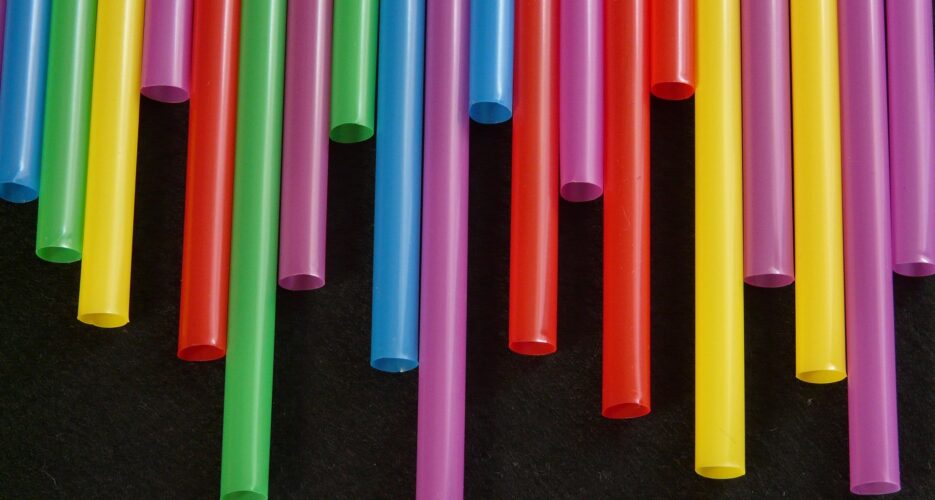The Ministry of Environment (Minister Han Wha-jin) announced its new measures to reduce disposable items on November 1. The ministry will implement the expanded measures from November 24. The government realized the need for a strengthened system to reduce disposable items as plastic waste has surged since the COVID-19 pandemic, and disposable cups in coffee shops have significantly increased. The new measures are the first extended measure taken since the ban on plastic bags in large retailers in 2019. Under the new measure, plastic bags are banned not only in large retailers but also in small- and medium-sized stores, and paper cups and plastic straws are also banned.
In a situation where using disposable cups has become common, the Ministry of Environment believes that a detailed and phased approach is needed to lessen the burden on businesses and get actual results in reducing disposable items. The ministry will implement the expanded and strengthened new measures from November 24, but the ministry will give a grace period of one year to establish the system well. In addition, the ministry will seek ways to improve the effectiveness of the new and existing measures and their applicability.
The Ministry of Environment will reduce disposable products and induce behavioral changes through guidance
The Ministry of Environment will give a grace period of one year before fully banning plastic bags, straws, stirrers, and paper cups. The guiding approach will differ from the previous approach. The government will encourage and support businesses to participate in a campaign to reduce disposable items and lead them to reduce plastic waste voluntarily.
Together with local governments, the regional environmental offices, the Korea Environment Corporation, and private organizations, the Ministry of Environment will implement a nudge campaign to induce changes in the attitude of businesses. Some campaigns include putting all disposables out of sight within the stores and providing no disposables set as the “green default” when placing an order at a kiosk to induce behavioral changes. The Ministry of Environment will visit stores not participating in the campaign with local governments to raise awareness of the campaign and the new system for reducing disposables. The ministry will also continuously monitor the effectiveness of the guidance.
Even during the one-year grace period, all the stakeholders must abide by the bans, except for certain unavoidable situations of businesses or situations requested by consumers. Retailers, including supermarkets, must provide plastic bags at a charge, if necessary, as stipulated in existing regulations. Considering the global trend that plastic straws are banned, the Ministry of Environment encourages stakeholders to use straws made of alternative materials such as paper, rice, and reeds. The Ministry of Environment will also consider replacing plastic straws with biodegradable plastic straws in the future.
The Ministry of Environment will improve the effectiveness and applicability of the policy
The Ministry of Environment will improve the effectiveness and applicability of the existing measures and the new ones to be implemented on November 24 to reduce disposables. Since April 2022, the government has given a grace period for banning disposables for the food service industry. From November 24, the local government will begin to ban disposables depending on their circumstances. The ministry will try to improve ambiguous and unreasonable regulations raised during the online briefings before November 24. Concerning duty-free shops, traditional markets, and other places that are out of reach of government administrative influence, the ministry will encourage them to sign agreements during the grace period to lessen disposables in everyday life.
Additionally, the Ministry of Environment made a pre-announcement of legislation on the revision of the Act on the Promotion of Saving and Recycling of Resources from January 25 to March 6 for forty days. The ministry is now reviewing banning wet wipes in restaurants and considering making wet wipes subject to waste charges and managing accordingly.
The Ministry of Environment will continue encouraging citizens’ participation in and promoting government measures
The Ministry of Environment plans to publicize a reduction of using disposables in everyday life to draw social consensus and voluntary involvement. The ministry will post promotional videos on social media and arrange customized promotions in theaters, baseball parks, and other places where many people use disposables. Idea contests and other participatory events that promote the use of reusable items such as tumblers and shopping bags in an easy and fun manner will also take place.
Any store or brand can participate in the campaign to reduce the use of disposables starting on November 24, and campaign details can be found on recycling-info.or.kr.
Starting in August, the Ministry of Environment conducted seventeen nationwide briefing sessions until October. It distributed the revised versions of the “Guidelines on the Scope of Disposables Reduction” that incorporated public suggestions.
Jung Seon-hwa, Director-General of the Resources Circulation Bureau, said, “I hope that the new attempt of the environment ministry, such as giving a grace period, will serve as an opportunity to change social awareness which has been tolerant of using disposables. I also hope the new measures will come to an actual result of the reduction.” She added, “The Ministry of Environment plans to continuously diversify policy measures that will effectively lessen single-use items while the citizens will not experience any inconvenience due to the new measures.”
Contact
Hwang Nam-kyung, Deputy Director
Resource Circulation Bureau
Tel.: +82-(0)44-201-7414
Source
Ministry of Environment (South Korea), press release, 2023-11-14.
Supplier
Government of South Korea
Ministry of Environment (South Korea)
Share
Renewable Carbon News – Daily Newsletter
Subscribe to our daily email newsletter – the world's leading newsletter on renewable materials and chemicals











